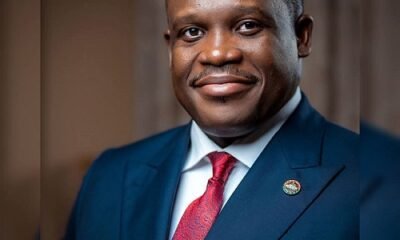Entertainment
African fantasy series Blood Psalms premieres on Showmax with glowing reviews
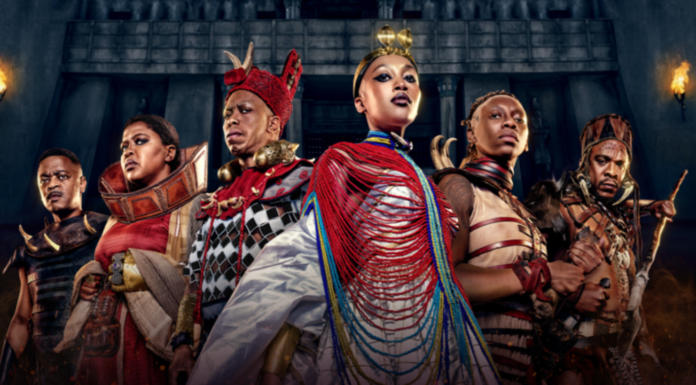
African fantasy series Blood Psalms premieres on Showmax with glowing reviews
The first two episodes of Blood Psalms, the first Showmax Original fantasy series, are now streaming.
Early reviews are glowing, with TVMzansi calling it, “Without doubt, the best TV show ever created in Africa”; Leon van Nierop “the biggest and most spectacular production of a local series yet” and TimesLive “African fantasy at its finest.”
Set in ancient Africa, the action-packed epic follows Princess Zazi (Bokang Phelane) as she battles a world-ending prophecy to navigate her people through ancient curses, long-standing tribal vendettas and the wrath of the gods.
“Watching it feels as thrilling as being an astronaut exploring new worlds,” says Genevieve Terblanche from tvplus. “The sheer scope of Blood Psalms is breathtaking.”
On TVSA, Movies And Things With Tha-Bang writes, “What Jahmil XT Qubeka and Layla Swart have achieved with Blood Psalms is something that will go down on SA TV history books like the Yizo Yizo and Intersexions of the world, series that came and changed the game when folks least expected it.”
Swart and Qubeka were responsible for South African Oscar entries Knuckle City and Sew The Winter To My Skin. Qubeka also directed Of Good Report, which won seven SAFTAs, including Best Film and Best Director, and Stillborn, which won the SAFTA for Best Short Film.
They’ve assembled an incomparable cast, with nine SAFTA winners – Bongile Mantsai, Hamilton Dlamini, Hlubi Mboya, Mothusi Magano, S’dumo Mtshali, Siv Ngesi, Thishiwe Ziqubu, Warren Masemola and Zolisa Xaluva – and all your faves, from Enhle Mbali Mlotshwa to Lemogang Tsipa, Faith Baloyi to Faniswa Yisa, Mandisa Nduna to Niza Jay, Richard Lukunku to Sello Maake Ka Ncube, Thabo Rametsi to Thando Thabethe, Thembikile Komani to Zikhona Sodlaka, and many more.
We caught up with the most ambitious filmmakers in Africa to find out more about Yellowbone Entertainment’s first Showmax Original, which is already topping the charts on Africa’s homegrown streaming service:
Where did the idea for Blood Psalms come from?
Qubeka: I was just always extremely curious about our continent. The question mark around the history of Africa, and where we come from, has been a great platform for us to be able to build this world.
Swart: I think Blood Psalms is a yearning more than anything else. It’s a look at a history that has never been depicted before, that we always wanted to see.
When is Blood Psalms set?
Qubeka: 11 000 years ago. Blood Psalms is an action adventure series that invites us into a world that no longer exists, a time before the Great Flood changed the world.
Swart: Blood Psalms draws from elements of a multitude of African mythologies and looks at various different tribes in Season 1 – the Akachi, the Uchawi, the Ku’ua, the Chini, and Great Nziwemabwe – as they migrated south from Kemet, which is now Egypt, and formed their cultures.
Qubeka:These tribes moved southward, running away from the calamity that was happening in Kemet and Kush, which is what we now know as northern Sudan. There are remnants even today that show that there was a great civilization and a great culture that comes from that space.
Which tribe do you focus on the most?
Swart: The tribal focus in season one is House Akachi, run by the eccentric King Letsha [four-time SAFTA winner Mothusi Magano].
Qubeka: We look at this world through the eyes of his daughter, a young Akachi princess by the name of Zazi [Bokang Phelane], as she goes on her own quest to find a sense of self in a rapidly evaporating world.
How do you feel about the inevitable Game of Thrones comparisons?
Qubeka: If they want to call it the African Game of Thrones, I’ll take that mantle on. If you love Game of Thrones, you’re gonna love this show.
But what we really want to do is create heroic archetypes for the African child. If you look across the entire landscape of cinema and television, there are no archetypes for the African child.
Swart: It’s a pioneering show that attempts to redefine our very perception of our identity as Africans. What we’re trying to do is to reclaim the continent’s history from an African perspective. The goal, for us, is to ensure that the golden thread of Africa’s stunning history really shines.
Qubeka: If we don’t start to project an image of how we see ourselves, someone else is going to do that for us.
There are very few references for Africa 11,000 years ago. Was this freeing or challenging?
Swart: Building a world that doesn’t exist has been enormously creative. Doing something set 11,000 years ago has really given us all collectively the scope to just play.
But it’s also enormously challenging. Every single costume, every single piece of the set had to be conceived and made from scratch.
Qubeka: I’m very excited to see how audiences engage this world. There’s a lot of things that people are going to look at and be like, ‘What are you talking about? Did they have guns in that time? Do they have electricity?’ There’s all sorts of things that we challenge in terms of conventions, of what people understand of our glorious past.
Where did you shoot in the Eastern Cape?
Qubeka: So the Akachi Citadel actually sits above the Hole in the Wall but we shot parts of the Citadel in different locations. For example, the big dam in Graaff-Reinet is incorporated as the Citadel dam, situated at the back end of the city.
What I really loved about shooting in the Eastern Cape is that it just brought a whole other dimension to what we were intending to achieve.
The epic scale of places like Coffee Bay and the Valley of Desolation – just the size and scale of these places – makes you feel so insignificant, so small, so we’re able to get an essence of what it could have been like 11,000 years ago on this continent.
Why should audiences watch your show?
Qubeka: It’s a sweeping epic adventure that doesn’t hold back. It is definitely a large canvas, one that I personally have not seen from this continent. This thing is big.
Now streaming, first on Showmax
Shot in the Eastern Cape, Gauteng and North West provinces, Blood Psalms is a Showmax Original in partnership with CANAL+, the Department of Trade, Industry and Competition, the Eastern Cape Economic Development Corporation (ECDC), the National Film and Video Foundation (NFVF) and the MultiChoice Innovation Fund, which supports South Africa’s most exciting entrepreneurs, enabling them to bring their unique, innovative and creative business ideas to life.
Showmax will drop new episodes of Blood Psalms every Wednesday until the end of November 2022.
Source: showmax
Entertainment
British Council Ghana-UK Music Partnership: Charterhouse’s Robert Klah attends The Great Escape Festival 2025
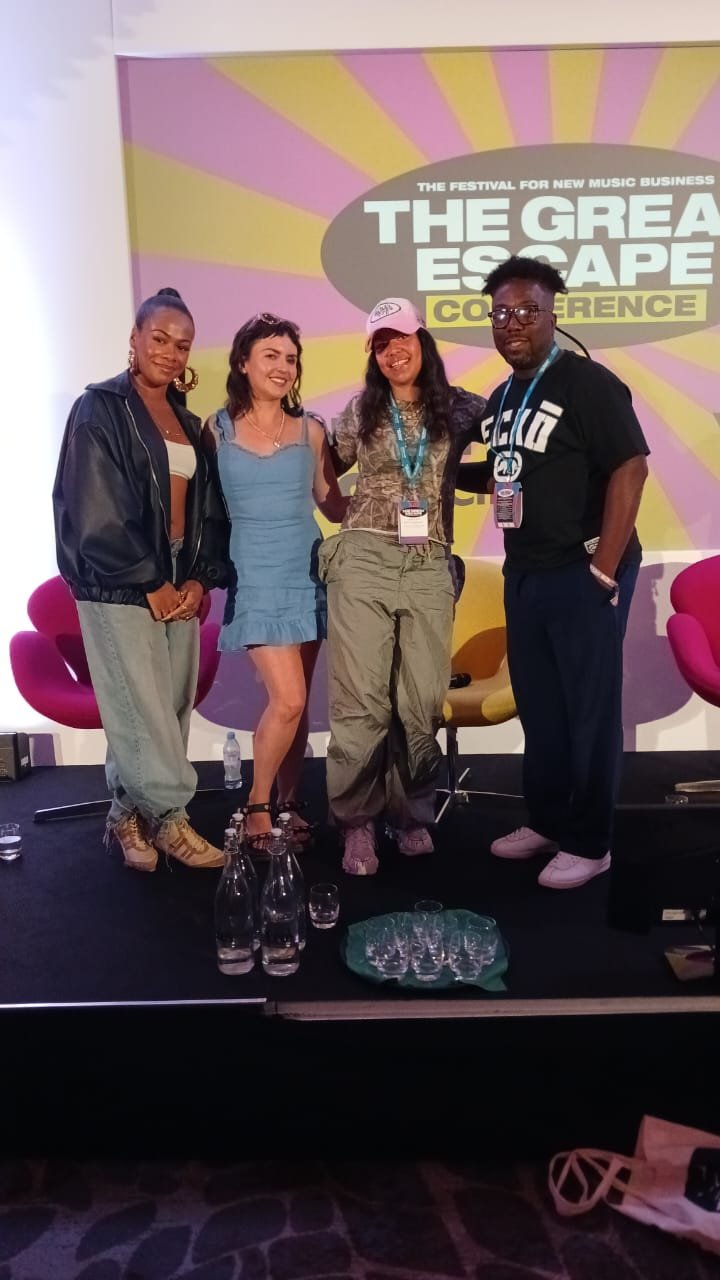
In a continued effort to strengthen Ghana’s creative industry and foster international collaboration, the British Council has sponsored Robert Klah, Head of Public Events and Communications at Charterhouse Productions and Lead for the Telecel Ghana Music Awards (TGMA), to represent Ghana at the prestigious Great Escape Festival in Brighton, United Kingdom.
The Great Escape Festival is the UK’s largest annual music showcase and conference, spotlighting over 300 emerging artists across multiple venues. 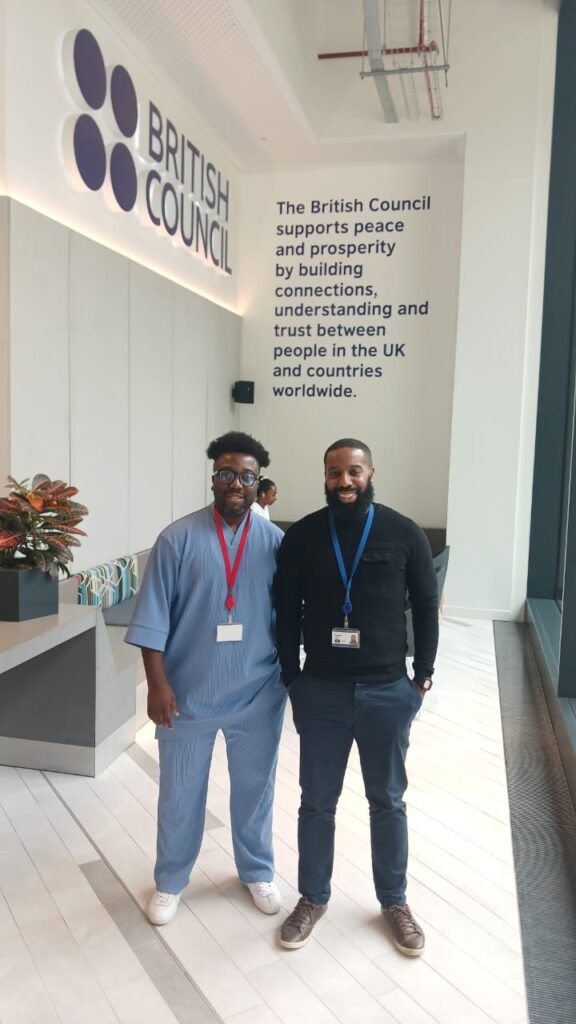
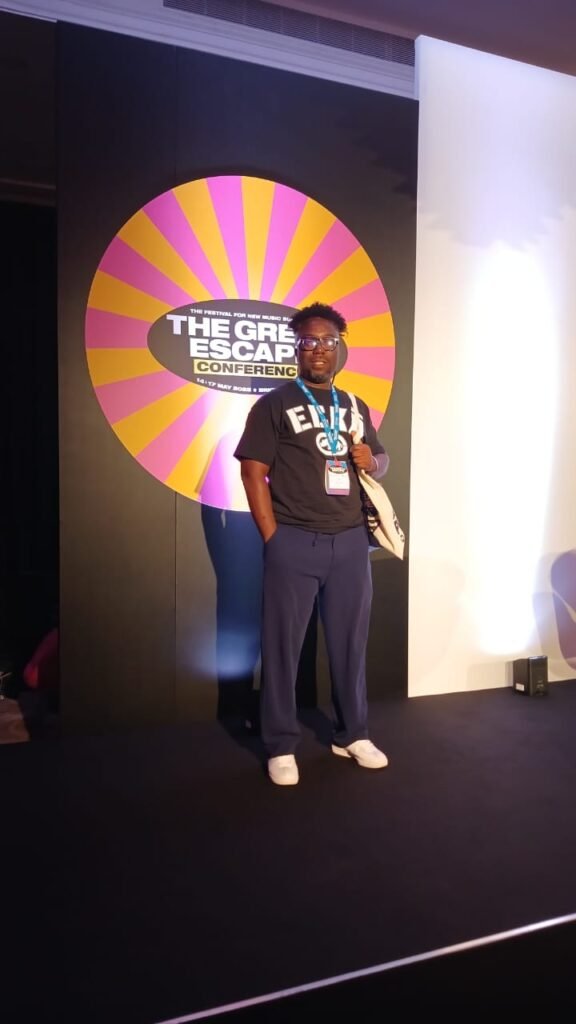
Mr.Klah joined a 13-member international delegation from countries including Colombia, Venezuela, the Philippines, Albania, Argentina, Ukraine, Cuba, Malaysia, and Thailand.
This initiative is part of the British Council’s broader mission to connect global creatives with the UK’s vibrant music scene.
As a major partner of the TGMA Unsung Category, the British Council’s support aims to :
.Expose Ghanaian creatives to innovative UK artistic work
• Foster international professional relationships and knowledge exchange
• Encourage future collaborations, co-commissions, and partnership projects
• Showcase the role of UK festivals in cultural and economic development.
“This opportunity is a significant step in building bridges between Ghana and the UK’s music industries. I noticed the zero presence of African music and artistes, which translates into new market opportunity for Ghanaian music and musicians to develop,” Robert Klah said.
According to him, “Additionally, the key learnings and contacts from the conference offers valuable insights and connections that can uplift emerging talents, especially those in the Unsung category, while adding value to the TGMA National Music Summit held on 21st of June each year.”
The British Council’s work in arts and culture, education, and language continues to build connections, understanding, and trust between the UK and global communities.
By linking the best of the UK with the world—and vice versa—the organization fosters mutual understanding of shared values and challenges, creating enduring people-to-people ties even amid strained official relations.
Entertainment
Nanabanyin Dadson Honoured with Prestigious TGMA Titan Award
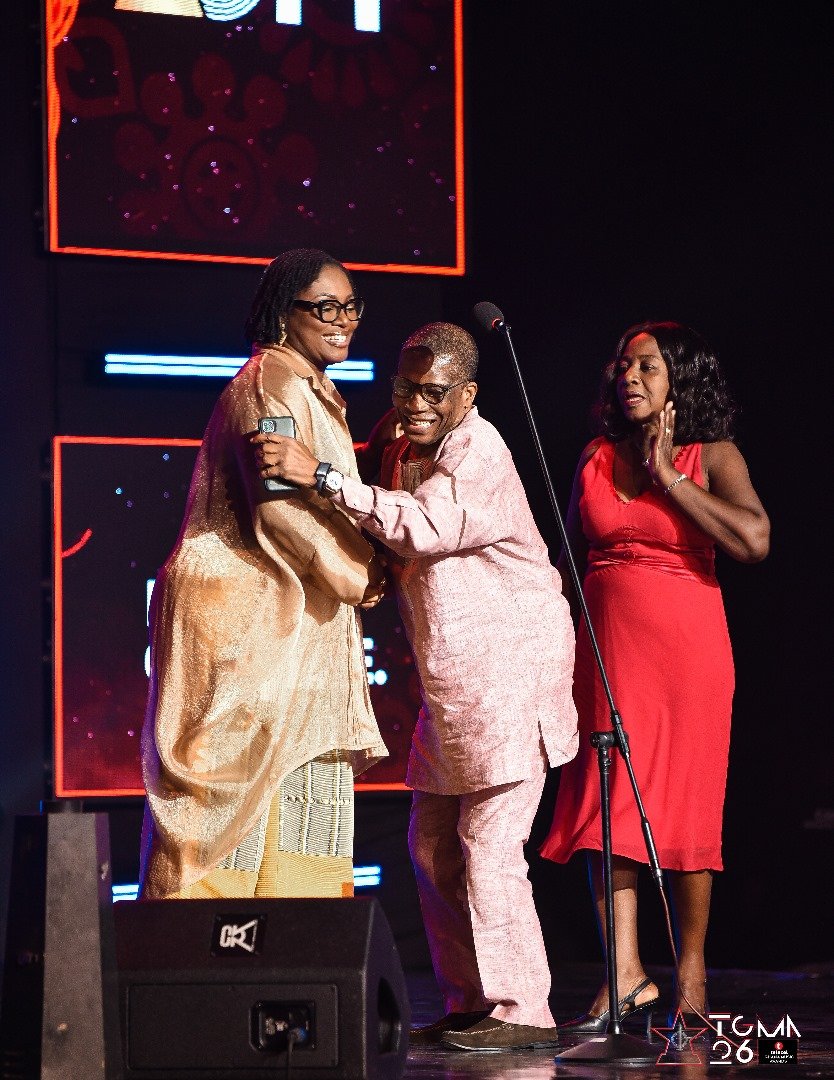
The Palms Convention Centre at La Palm Royal Beach Hotel was ablaze with glitz, and electrifying performances as the 26th Telecel Ghana Music Awards (TGMA) celebrated its winners in an exclusive event dubbed “Nite with AOTY” on Friday, June 6, 2025.
The night was not just about music—it was also a night of honour and legacy, with veteran journalist and cultural icon Nanabanyin Dadson taking home the prestigious Titan Award for his immense contributions to Ghana’s music and arts ecosystem.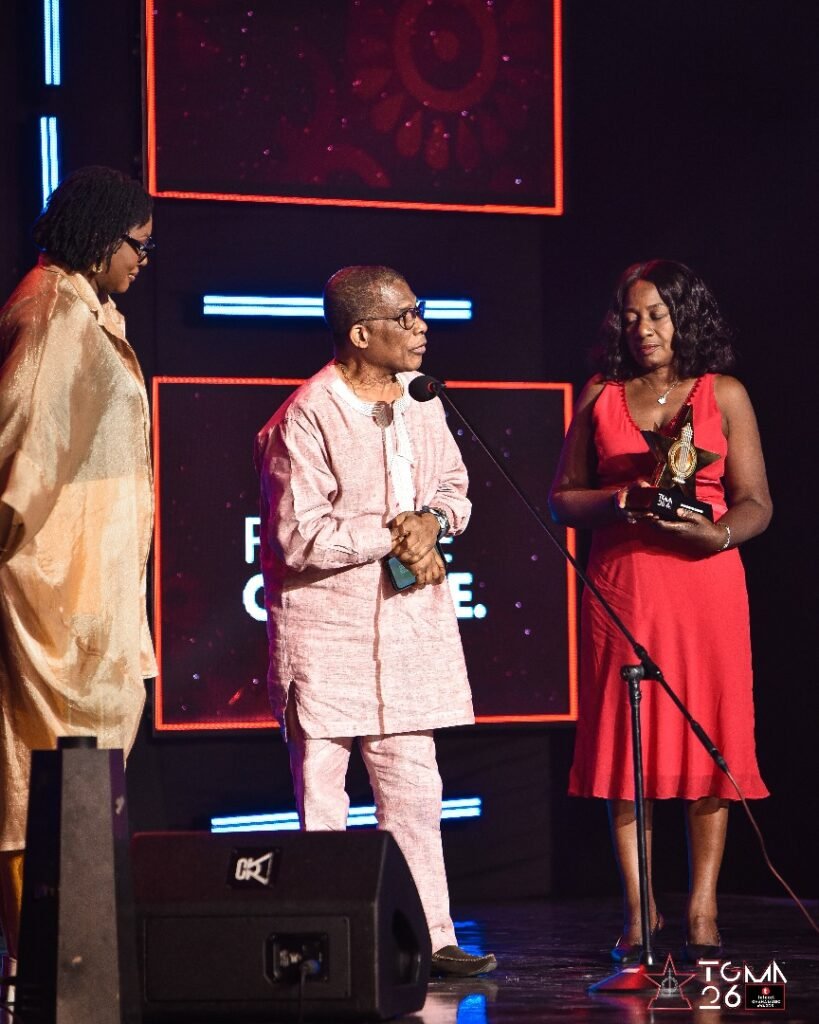
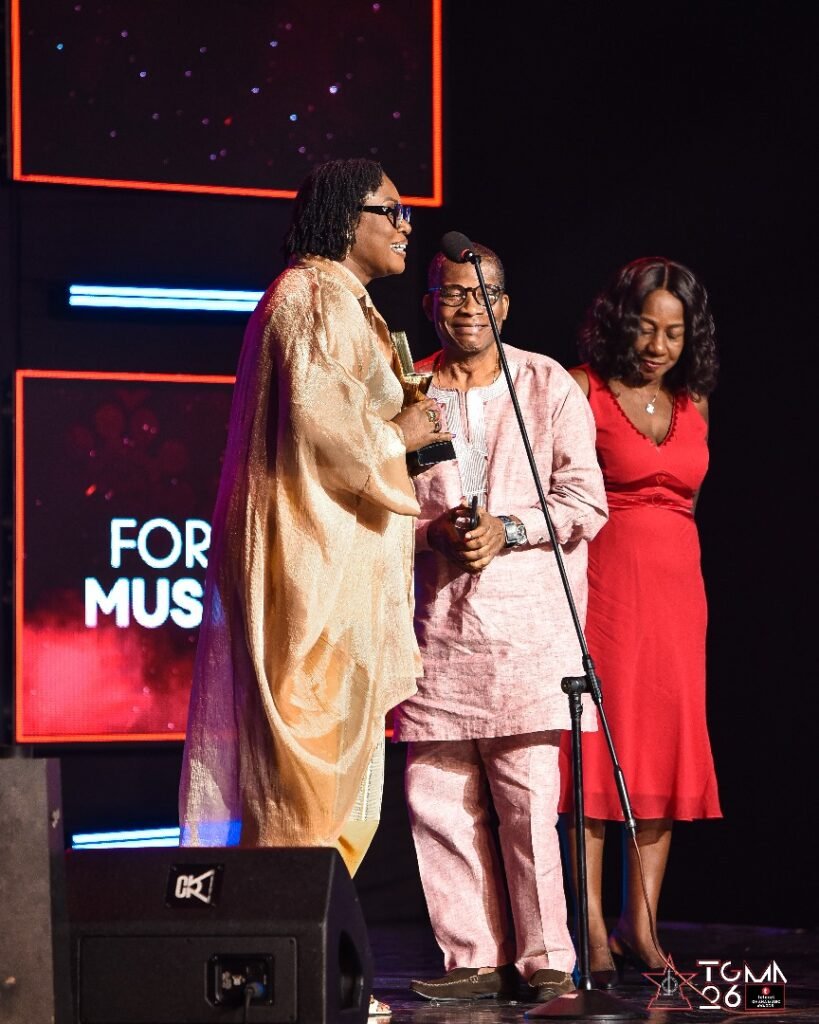
This award was presented by the CEO of Charterhouse, Mrs. Theresa Ayoade, who lavished praise on Dadson, highlighting his invaluable contributions to the industry and to the Ghana Music Awards scheme since its inception.
Titan Award: Nanabanyin Dadson’s Enduring Legacy
Nanabanyin Dadson is a distinguished Ghanaian journalist, arts critic and educator whose influential career spans over three decades. His work has left a lasting imprint on Ghana’s creative and cultural landscape – particularly in the areas of music journalism, arts criticism, and cultural tourism.
A graduate of the University of Ghana with a degree in English and a diploma in Performing Arts, Mr Dadson further pursued postgraduate studies in African Studies and Communication.
He began his journalism career as an arts reporter and columnist with The Mirror and Daily Graphic, before becoming Editor of Graphic Showbiz. Under his leadership, the paper rose to prominence as Ghana’s foremost publication dedicated to entertainment, music and the creative arts.
Throughout his career, Mr Dadson has consistently championed the arts and tourism sectors, using his platform to advocate for greater visibility, understanding and appreciation of Ghana’s rich cultural heritage.
His commentary and reportage helped elevate cultural tourism into national conversation, encouraging the public and policymakers alike to recognise its value.
His work has been published in a range of national and international outlets – including West Africa Magazine, African Concord, Africa Magazine, Africa Asia, and the Torino Film Festival Magazine – and cited in academic publications such as Africa Cinema, Politics and Culture by Manthia Diawara.
He also contributed to landmark publications including Jubilee Ghana – A 50-Year News Journey Through Graphic, the Journalism Style Book, and the Journalism Policy Guide for the Graphic Communications Group.
Widely acknowledged as the only arts journalist of his time with both academic and practical grounding in the arts, Mr Dadson brought critical depth, eloquence and clarity to his writing.
His stated mission – to move the arts from the margins and reposition them as a serious and essential part of public discourse – has been largely realised, due in no small part to his pioneering efforts.
Now serving as Head of the Department of Journalism, Visual and Digital Communication at the African University of Communications and Business (AUCB) in Accra, he continues to mentor and inspire the next generation of media practitioners.
He has also delivered lectures at institutions such as New York University (Ghana), the Ghana Institute of Journalism, and BlueCrest College.
His contributions have been recognised with several awards – including the Ministry of Information’s Artswriter Prize (1986, 1988), the Ghana Journalists Association’s Arts & Culture Writer of the Year (1996), and the GJA Recognition Award for Journalism (2004).
Nanabanyin Dadson remains a towering figure in Ghanaian cultural journalism – a passionate advocate for the arts and tourism, and a custodian of Ghana’s creative legacy.
Receiving the Titan Award, Dadson was celebrated as a true custodian of Ghana’s creative legacy, whose work has elevated cultural tourism and arts discourse in the nation.
Other Honourees of the Night
The event also recognised two other outstanding personalities:
1. Opoku Sanaa – Instrumentalist of the Year
A renowned bassist and music director, Sanaa has performed globally, from Expo 2020 Dubai to the Coca-Cola Arena, and worked with top artists like Joe Mettle, Diana Hamilton, and Cwesi Oteng. His 2024 album, “It’s Time”, showcases his genre-defying talent, solidifying his place among Africa’s finest instrumentalists.
2. Susuma Pan-African Dance & Music Ensemble – Traditional Artiste of the Year
Founded in 1991 by Nana Kwame Dadzie, this award-winning ensemble has taken Ghanaian traditional music and dance to global stages, preserving and promoting the country’s rich cultural heritage.



